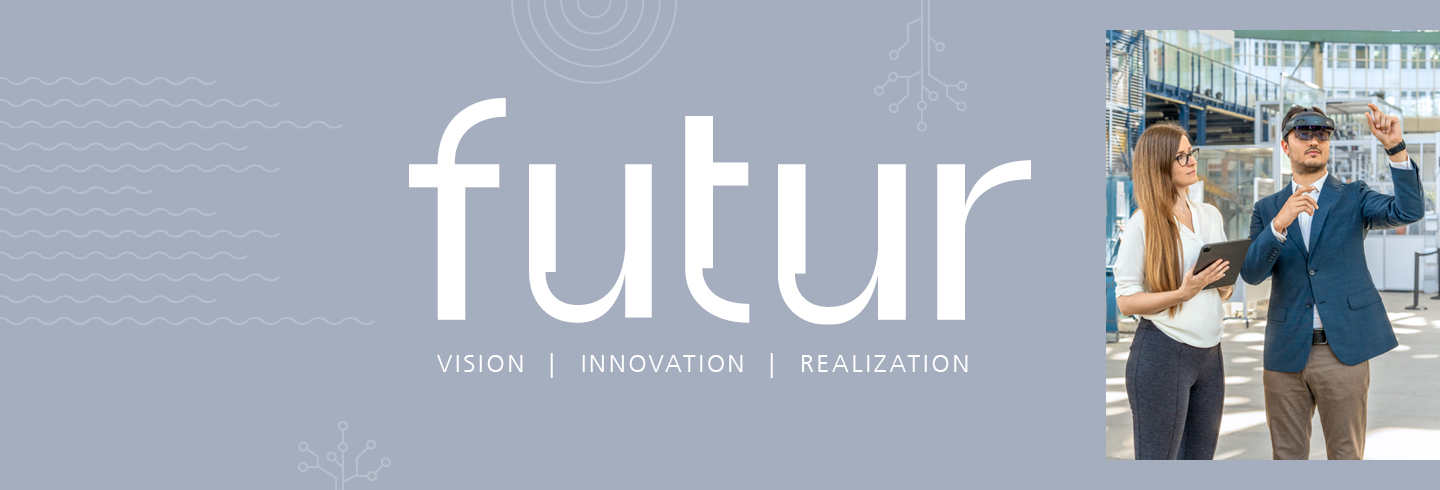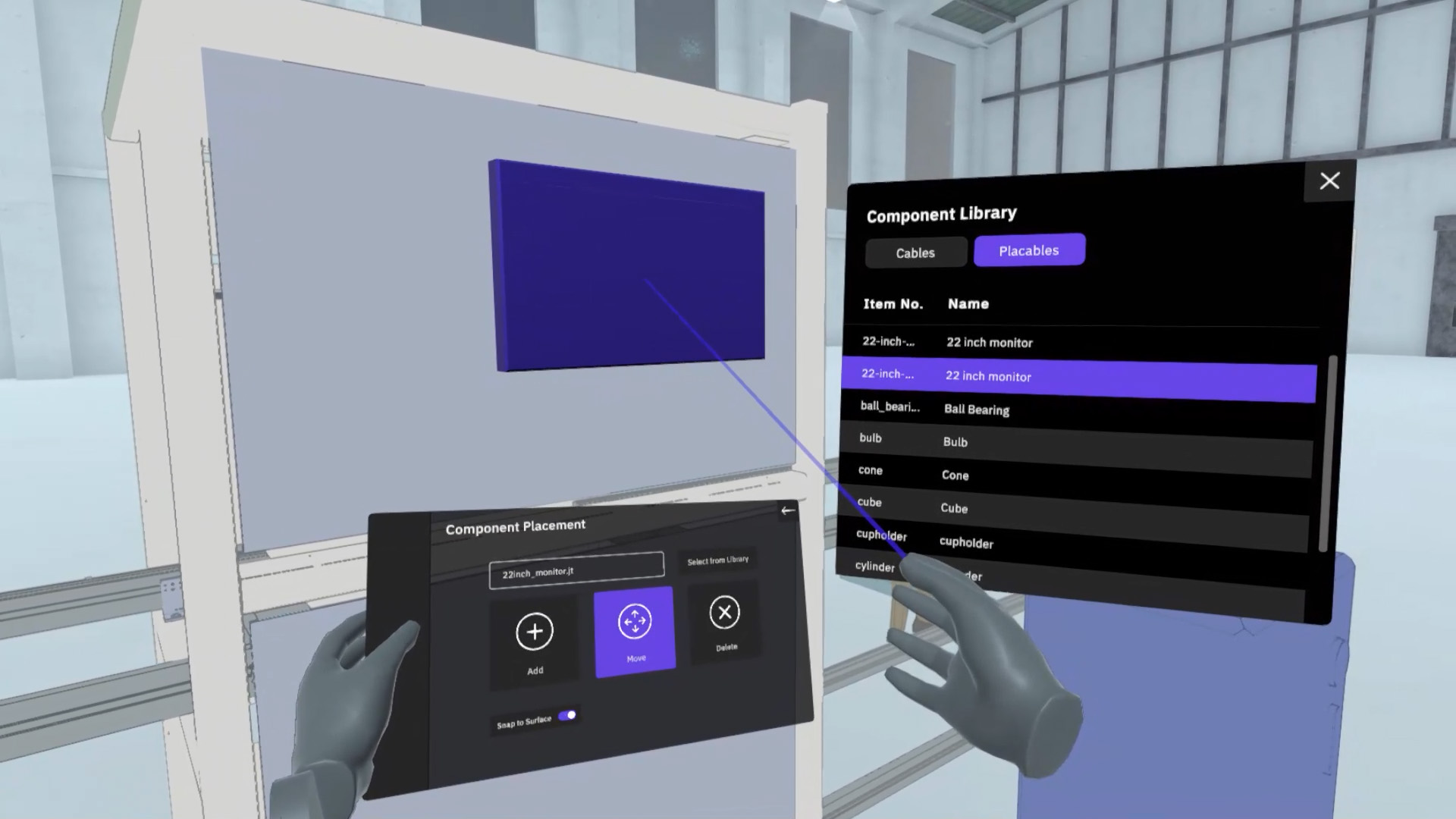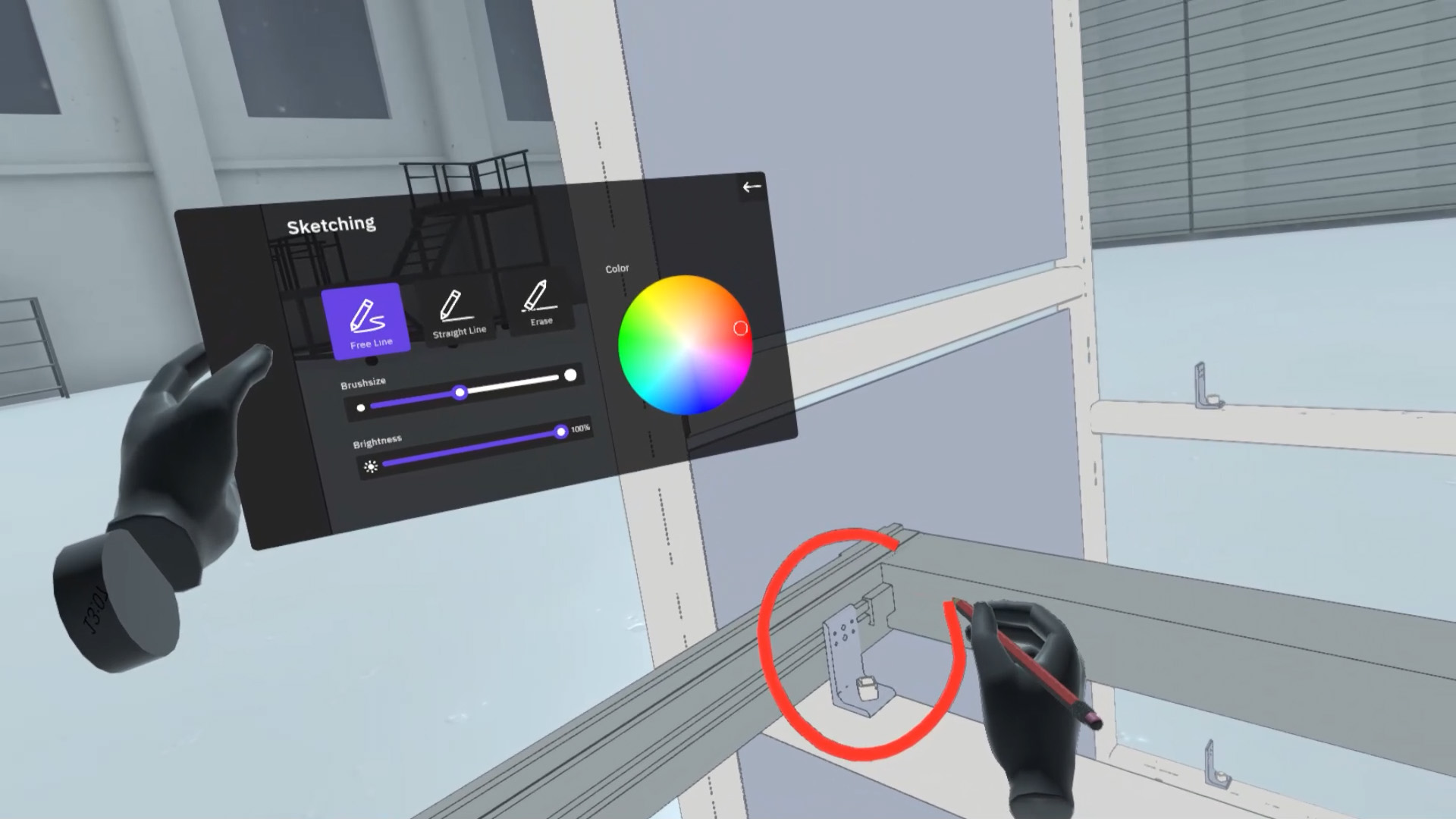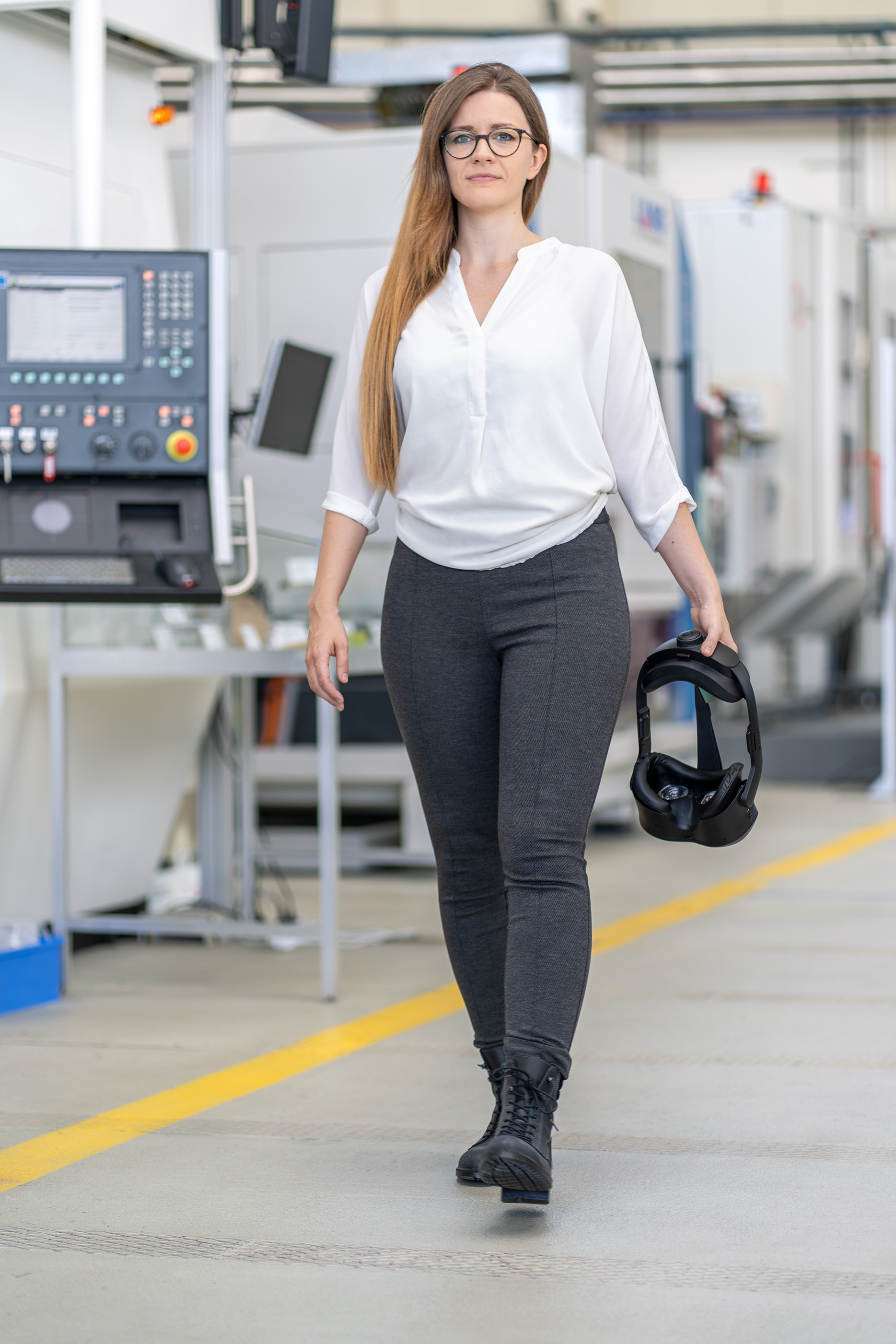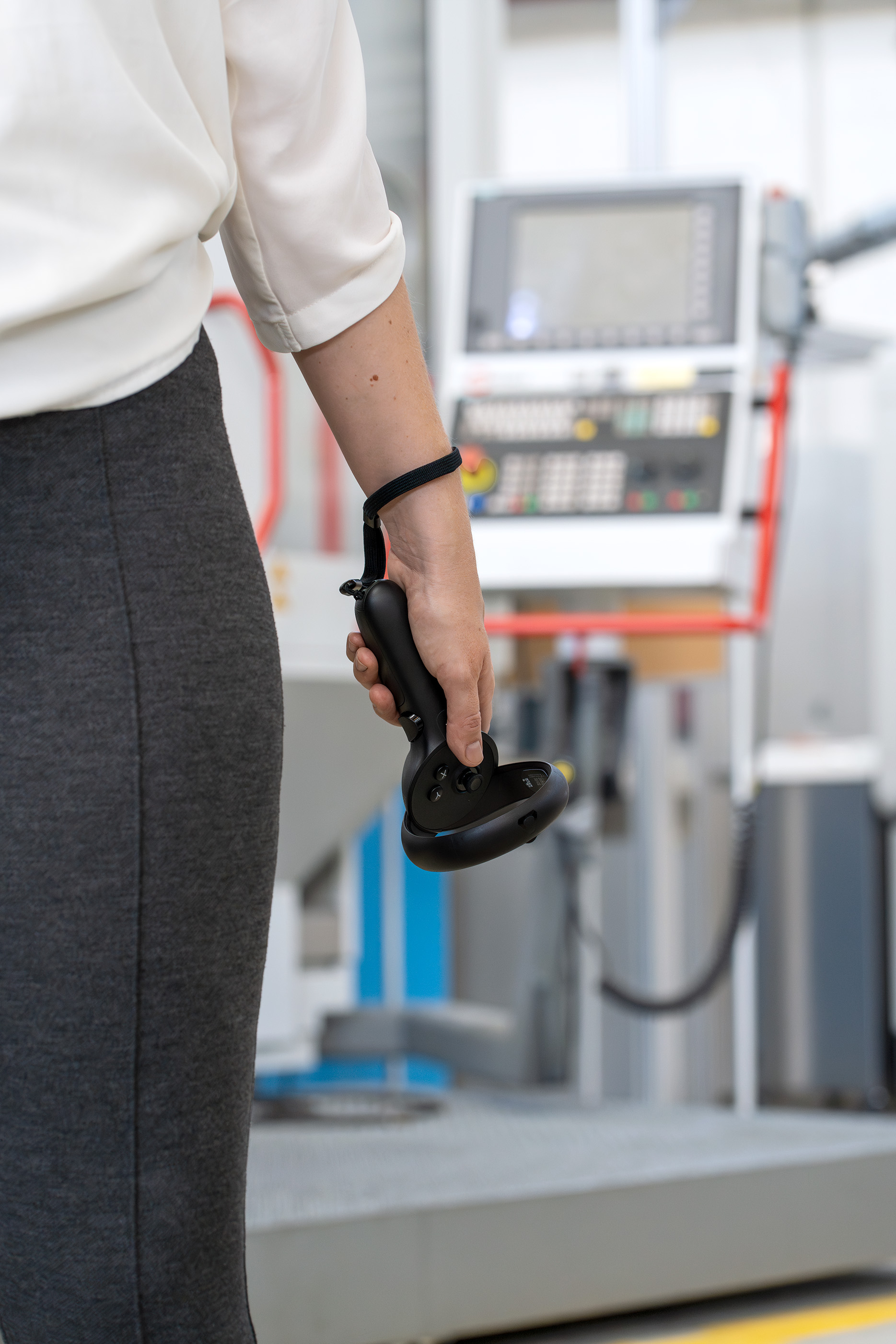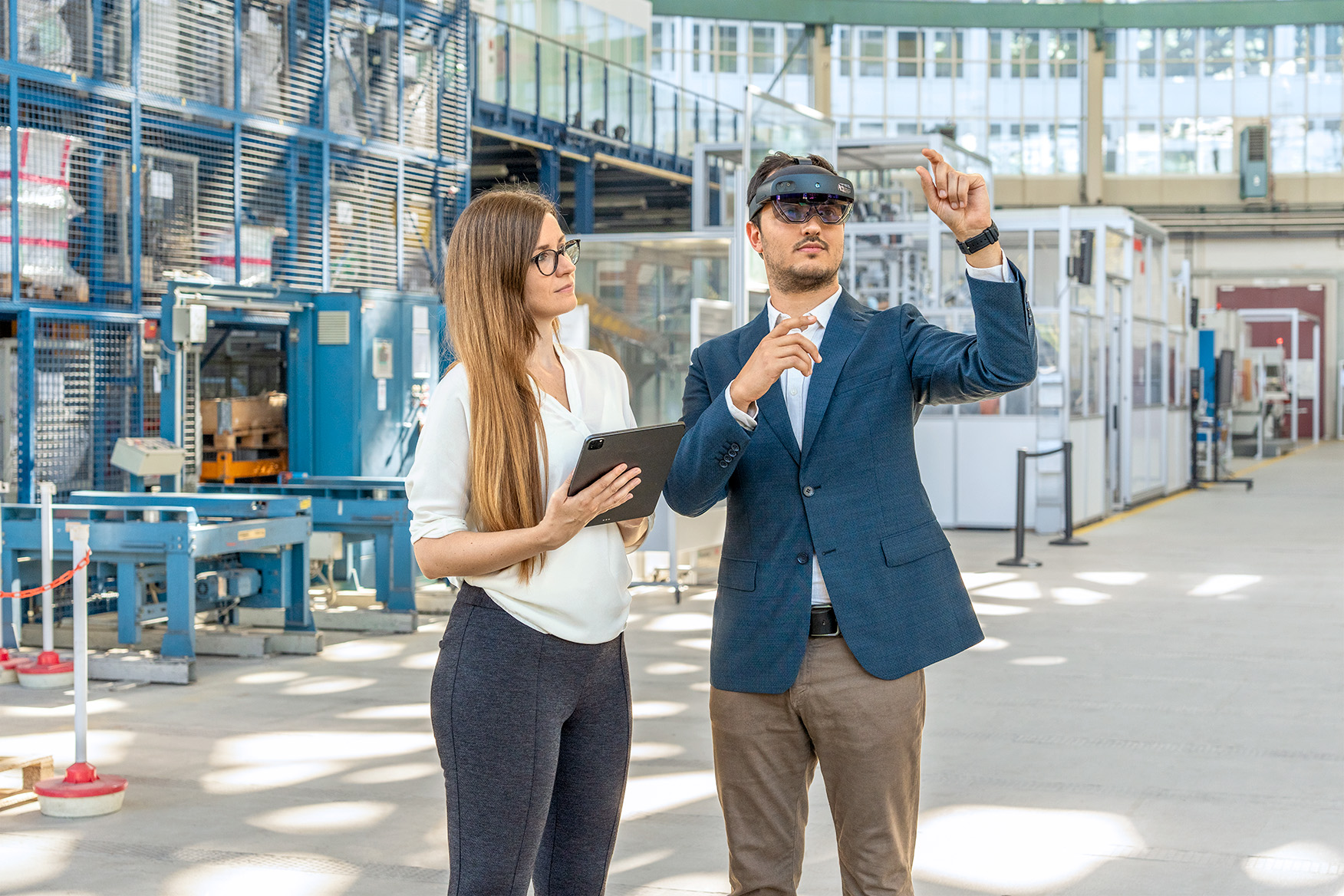Virtual Testing – Real Savings
Product development costs have become an existential question for the German and European economy. Whether in mechanical engineering, the automotive industry, the mobility sector, or the construction industry: the later planning errors are discovered, and the more projects are delayed, the more severe the consequences in competition. Researchers at Fraunhofer IPK support companies in minimizing such risks using extended reality methods like virtual reality (VR). They have developed a user-friendly virtual reality platform for testing and adapting designs, prototypes and concepts under realistic conditions. The platform is called enVAR and is based on the principles of immersive technologies.
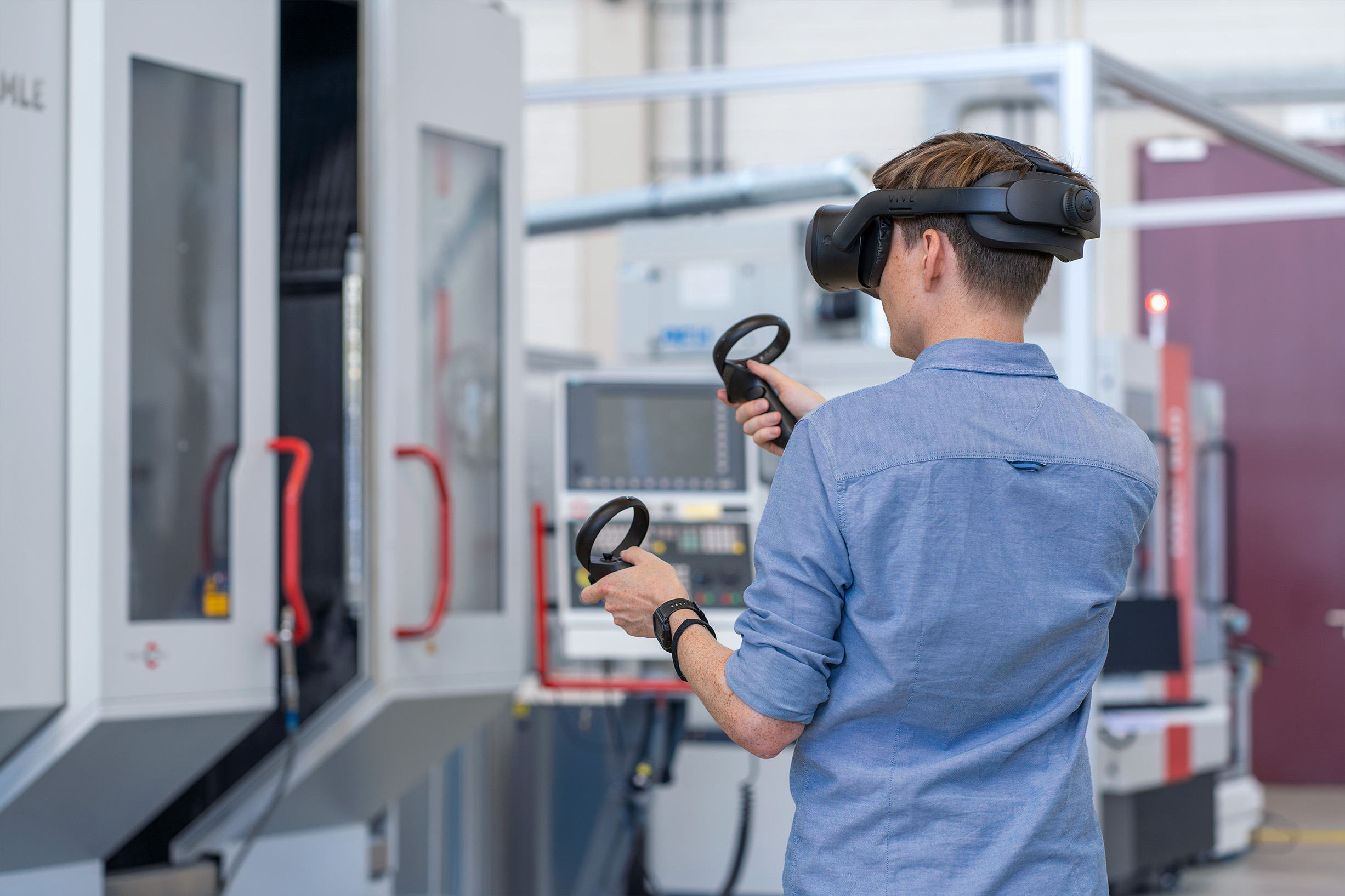
Detecting Weaknesses Early
enVAR allows engineers to import data from the product lifecycle management (PLM) system into a VR environment and visualize 1:1 scale 3D models of their concepts. This can be helpful in identifying weak points at an early stage. Additionally, other team members, even without CAD knowledge, can get a true picture of the project’s status. These include, for example, trainees who take job tickets using the integrated note function, or members of management who suggest corrections. Instead of time-consuming explanations of screenshots via PowerPoint, employees can exchange information at eye level and compare work statuses. Once the team agrees on changes, they are integrated back into the PLM system, allowing product development processes to continue seamlessly.
Plan, Assess, Optimize
The use cases of enVAR include installation inspections, feasibility studies, and needs analysis for resource minimization. Project teams can, for example:
- model the complex interior of a vehicle to minimize space taken by certain components.
- determine the ideal cost-comfort ratio for long-distance trains, from seating arrangement and luggage storage to cable routing and design of economic areas to the installation of sleeping compartments.
- find the right location for shelves, monitors, and seating in a university library
- virtually lay fiber optic cables in an office complex to precisely determine requirements.
The software is intuitive to use and provides precise results. For example, if pipes need to be laid, the team defines parameters like diameter and minimum bend radius, and these are read into enVAR as a configuration file. In the software, they can choose the corresponding pipe type and place it on the model’s surfaces using control points, visualizing where pipes with predefined properties should run. Control points can be moved or deleted at any time, along with the virtual pipes.
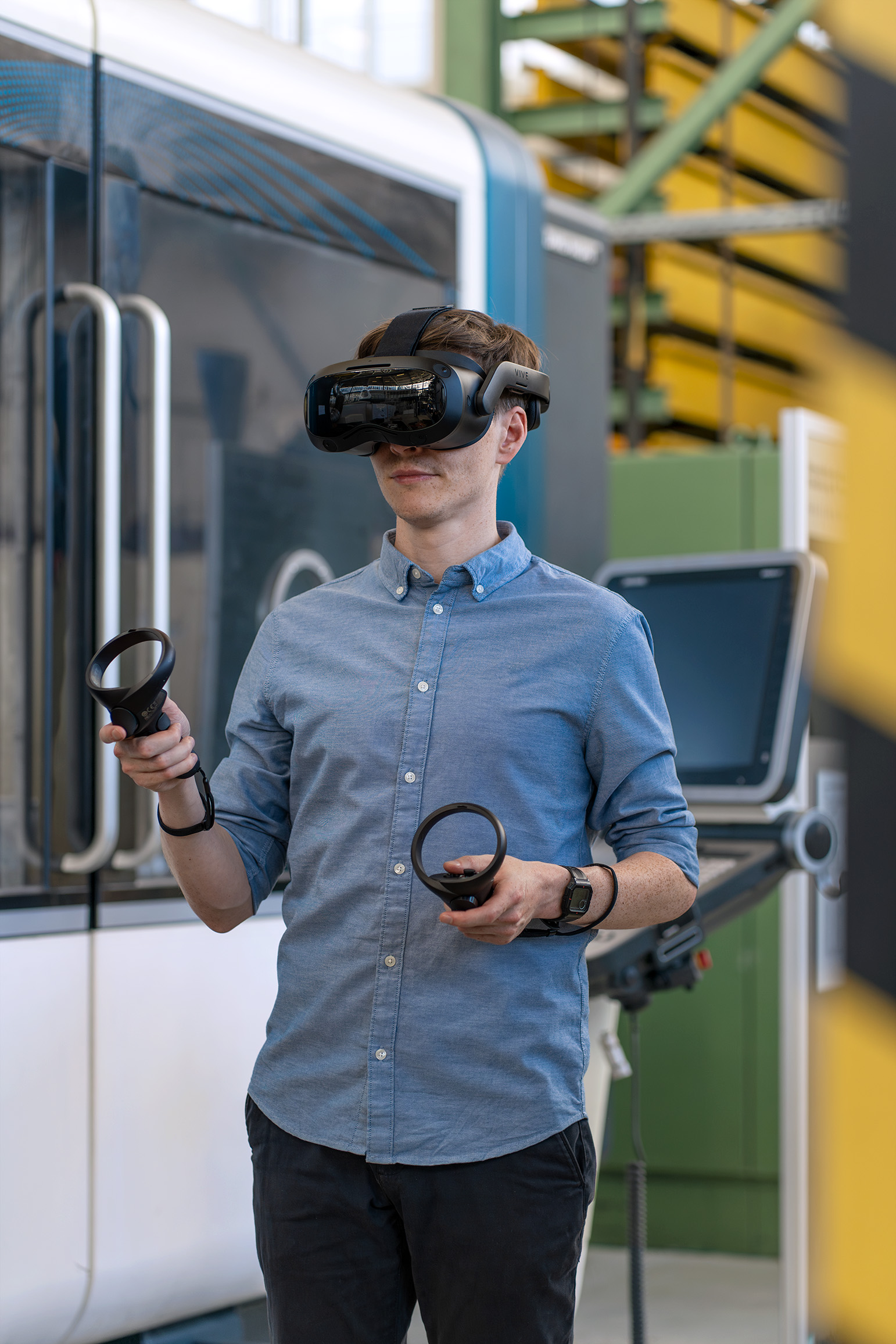
Real Components in a Virtual Environment
Fraunhofer IPK is already preparing enVAR for additional tasks, such as virtual collision tests in vehicle development, ergonomic assessments in prototype construction, and visual inspections. Furthermore, the Fraunhofer software could potentially benefit from integrating an augmented reality application, as user interactions and PLM interfaces tested in VR can be incorporated. This means development teams will be able to manipulate real components in a virtual environment.
Collaborative Engineering Through Immersion
Fraunhofer IPK provides solutions to industrial questions regarding the future of engineering and develops holistic methods and technologies for product development. One of the researchers’ focus areas are the so-called immersive technologies. Collaborative engineering on platforms such as enVAR allows entire teams to dive into virtual worlds together. Other immersive solutions can be found as industry-related applications in the virtual commissioning of facilities, in security methods, assistance systems, and training environments.
 Fraunhofer Institute for Production Systems and Design Technology
Fraunhofer Institute for Production Systems and Design Technology